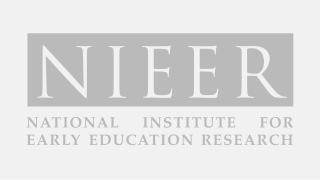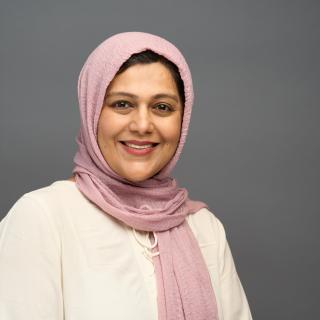
Learning & Development
Optional description Lorem ipsum dolor sit amet, consectetur adipiscing elit, sed do eiusmod tempor incididunt ut labore
Lorem ipsum dolor sit amet, consectetur adipiscing elit, sed do eiusmod tempor incididunt ut labore et dolore magna aliqua. Ut enim ad minim veniam, quis nostrud exercitation ullamco laboris nisi ut aliquip ex ea commodo consequat. Duis aute irure dolor in reprehenderit in voluptate velit esse cillum dolore eu fugiat nulla pariatur. Excepteur sint occaecat cupidatat non proident, sunt in culpa qui officia deserunt mollit anim id est laborum.
Our Insights
There are advantages to linguistic and cultural matches in the classroom including supporting bilingual acquisition that simply cannot occur without Latine educators in these spaces.
In 2022, the World Needs to Take Care of Its Children
At the end of last year, UNICEF released a new report, Preventing A Lost Decade: Urgent action to reverse the devastating impact of COVID- 19 on children and young people…

Learn More About Our Work
NIEER Policy Landscape Reports
Strategic Investments at a Critical Time
Since 2012, Louisiana’s birth-to-five early care and education (ECE) system has been consolidated within the Louisiana Department of Education (LDOE) and includes oversight of the Ready Start Network initiative, which supports local infrastructure that empowers community networks to drive improvement. Since the inception of its early childhood reform efforts, the state has had a strong strategic framework in place, which has guided its Preschool Development Birth to Five Grant (PDG B-5), and now its decisions about the use of new federal funds. In an interview in May 2021, Deputy Assistant Superintendent of Early Childhood Strategy, Taylor Dunn described the state’s priorities and new ideas for building on their state’s momentum towards a high-quality, equitable birth-to-five system.
-
We’re investing in the capacity of local communities that will set them up for success beyond this one-time federal funding. Since 2015, we have had an early childhood network in every community, focusing on the local coordination of early childhood – including coordinated enrollment, coordinated CLASS observations, and coordinated funding requests for community pre-K funding. We built on this effort with the formation of the Ready Start Networks in 2019. The networks are provided with funding and support to develop a local strategic plan; recruit a broad set of stakeholders; establish a local governance structure and generate revenue for birth through three-year-old access.
-
The Louisiana Early Childhood Care and Education Commission released its annual report at the end of March 2021, making the case for substantial investment in ECE. When ARPA passed just a few days later, there was some concern about the implications a large increase in federal funding would have on efforts to focus attention on the state’s role in financing early care and education. State lawmakers have been considering various revenue streams that would provide greater support to ECE. Many advocates and leaders in our state are considering the federal stimulus funds as a “bridge” that gets us to 2024, but urging our state and localities to plan to sustain the expansion efforts in 2024 and beyond.
-
We’ve put out a planning guide to support school systems and community networks with planning for and budgeting new funds under CCRSA, and we expect to release a comprehensive plan for supporting children, families, and and the child care field through ARPA funding sometime this summer.
Early Learning and Child Care on Canada’s Agenda
Canada’s Budget 2021 is focused on pandemic recovery, including the intention to develop a country-wide system of early learning and child care. The convergence of COVID-19, a finance minister who is herself a working mother, and decades of research and advocacy created a unique moment for historic public spending on young children.
The budget announces money and aspirations but not implementation details. Next steps are dependent on negotiations with 13 provinces and territories as well as separate agreements with Canada’s First Nations, Métis and Inuit peoples. Questions are circulating about how new funding will make it to lower levels of government and ultimately benefit children and their families. Kerry McCuaig, a fellow in early childhood policy at the University of Toronto, prepared a budget Explainer outlining what is known to date.
The challenge ahead is to ensure program quality develops in tandem with the growth of spaces and more affordable parent fees. Advocates, who have seen past promises of universal child care dematerialize during intergovernmental bargaining, remain cautiously optimistic.
Our People
Lorem ipsum dolor sit amet, consectetur adipiscing elit, sed do eiusmod tempor incididunt ut labore et dolore magna aliqua. Ut enim ad minim veniam, quis nostrud exercitation ullamco laboris nisi ut aliquip ex ea commodo consequat. Duis aute irure dolor in reprehenderit in voluptate velit esse cillum dolore eu fugiat nulla pariatur. Excepteur sint occaecat cupidatat non proident, sunt in culpa qui officia deserunt mollit anim id est laborum.
Sabin brings a diverse background in accounting and reporting for corporations, budget management and development for local governments and administrative and financial management in higher education to her role at NIEER.
Learning styles spaced practice bite-sized learning branching scenario.





